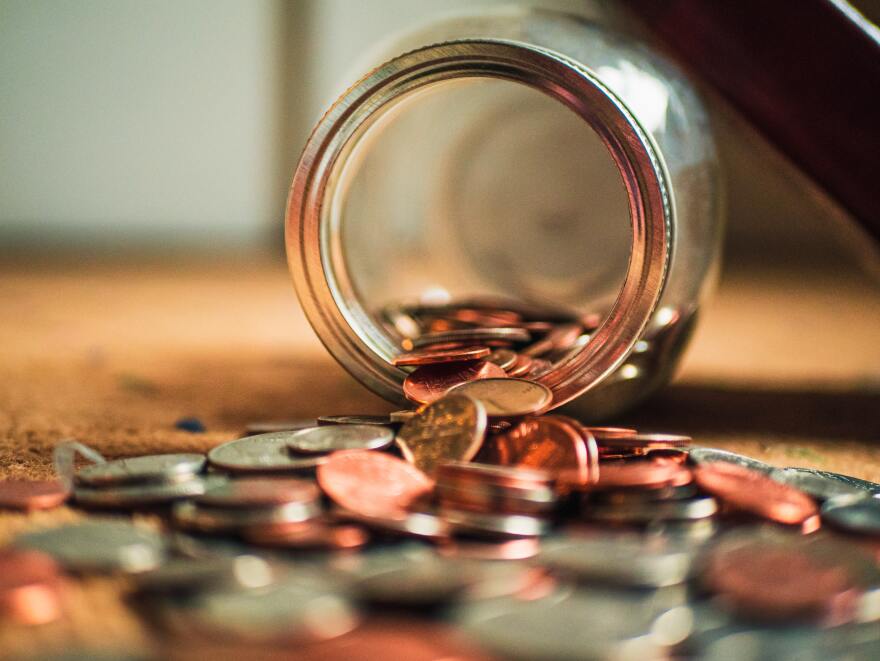The Federal Reserve last month issued an order for Reserve Banks to ration their coin inventories. The move came as the COVID-19 pandemic "significantly disrupted" normal coin supply chains and circulation.
Businesses around Ohio and Greater Cincinnati are feeling the effects of that shortage as they're not able to get sufficient quantities of quarters, nickles and dimes from local banks. Paper money is not affected.
Bruce Yeoman owns three coin-operated Car Wash Inn locations.
"Our business is run on quarters and with the coin shortage banks don't have the quarters to replenish," he says, adding banks tell him their supplies vary week to week.
Local bank branches are limiting coin distribution. Some businesses are posting signs near cash registers asking people to pay with credit cards or exchange change if they can because of the shortage.
As NPR reports, the U.S. Mint produced fewer coins this spring to try to protect employees from the coronavirus, however, the larger problem is distribution. Many bank lobbies were closed, reducing coin deposits, and those coin-sorting machines you often see in retail stores saw a decline in use.
"The flow of coins through the economy ... kind of stopped," Federal Reserve Chair Jerome Powell said.
"The bank gave me two rolls today and told (me) don't expect to get them again," one woman wrote on Facebook.
Yeoman is turning to friends and social media to keep his business running, asking if he can buy quarters from anyone who has them lying around at home.
"Everybody has a coin jar at home," he says. "I've asked (friends and family) to see what they have and I've been driving around from house to house giving them cash for their quarters."
Yeoman says he's getting by thanks to that generosity but he estimates it's only making up about 5% of what he would normally use in a given week.
WVXU reached out to Fifth Third and US Bank, the two largest banks in the region, for comment but both declined.
The Ohio Bankers League, a banking trade association, says some of its members are making their lobby coin-counting machines free right now to encourage people to drop of change. Vice President of Public Relations JT Thurston adds now would be a great time to empty out spare change jars and piggy banks and get that money into accounts that grow interest. That will also help the economy by getting that change back into circulation.
Thurston says he spoke with his contacts at the Federal Reserve this week and heard some encouraging news.
"The Fed expects things to improve over the next couple of weeks and then normalize in a month or so," he says, adding production is ramping back up.
"The picture we're getting is mixed," Thurston says when asked if certain parts of Ohio are being affected worse than others. "Some banks have no issue at all, other banks have seen an issue but it has not been as extreme as in other parts of the state. ... It seems to be a fairly even mix of how severe the impact has been."
There is some additional hope, NPR notes: "Coinstar, which operates 17,000 coin-sorting kiosks around the country, says people have started cashing in more change as stay-at-home orders are lifted. 'We've been making more frequent coin pick-ups to help get coins back into circulation,' said Coinstar CEO Jim Gaherity."
Yeoman has a back-up plan if his quarter supply dries up. "We can switch to tokens. We really don't want to because even though the tokens are reusable you're paying 27-28 cents a piece for them." Plus, he says, while you'd think customers would remember to bring the tokens back since they don't work anywhere else, they tend not to and the cost adds up for the business.
"If you have any change at home, get it to the banks," he pleads. "There's businesses that need it."



